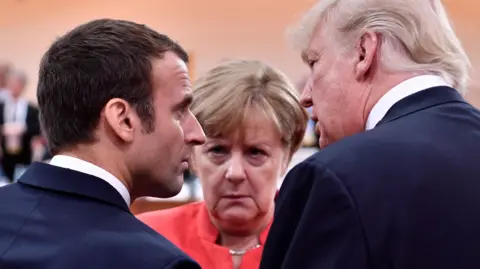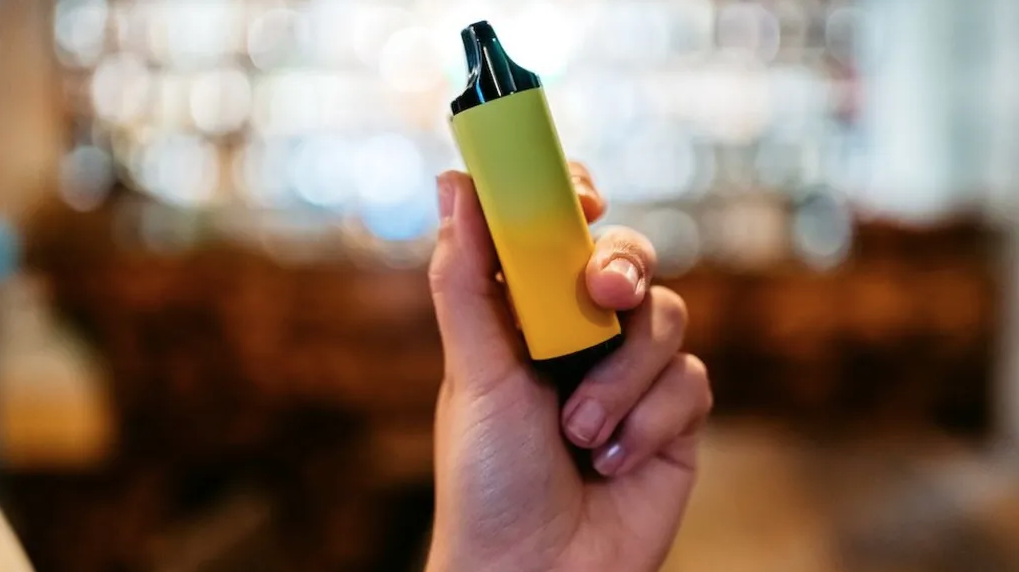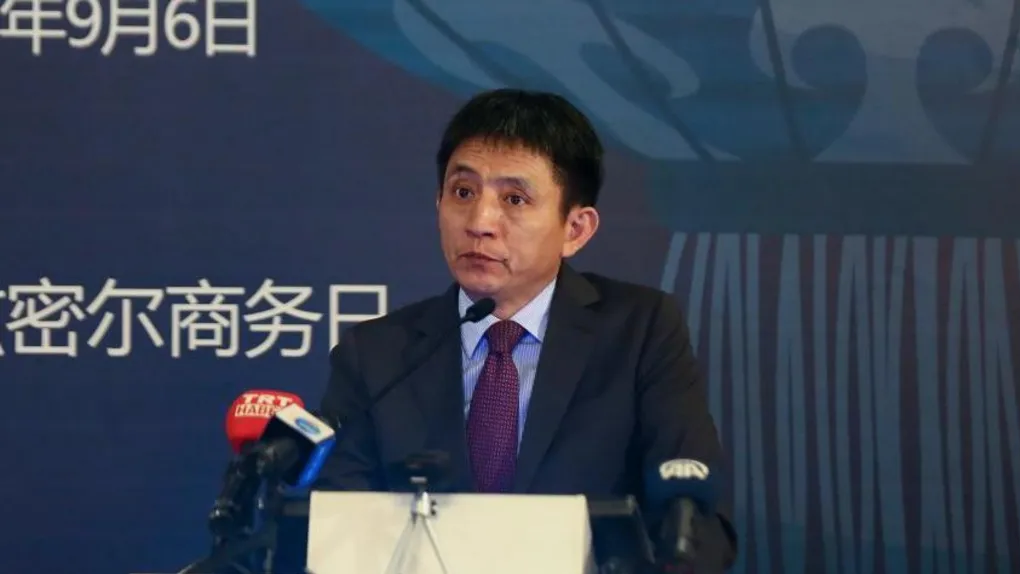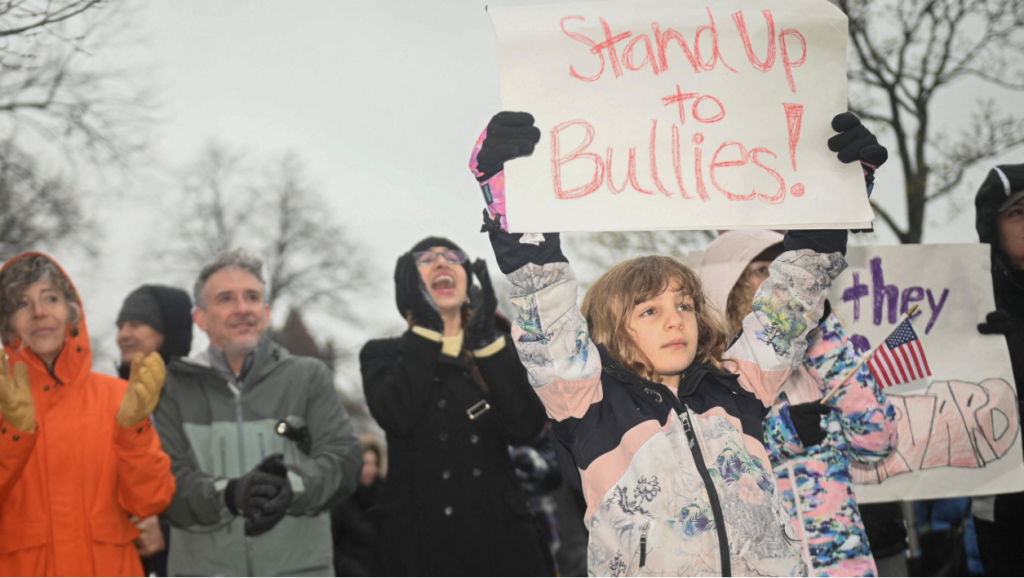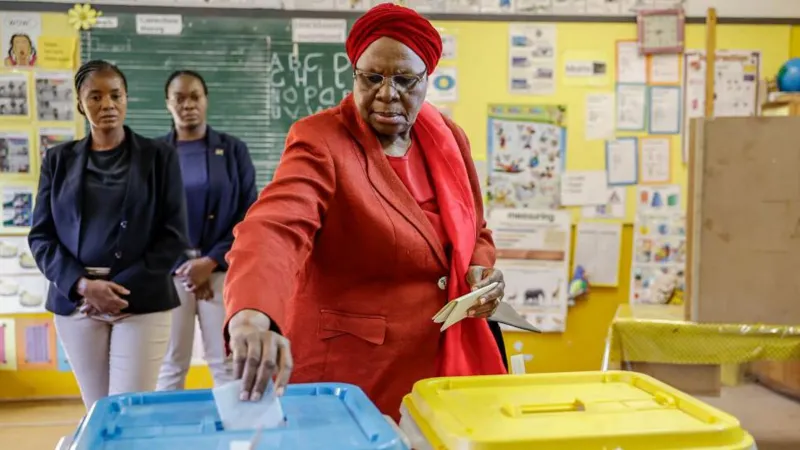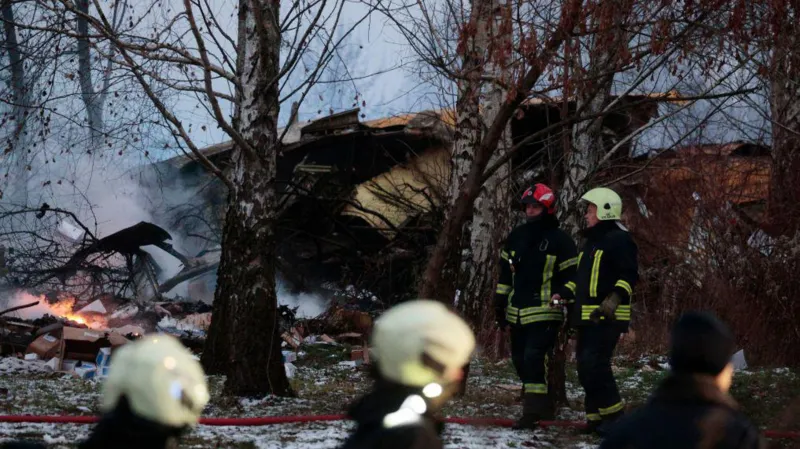Angela Merkel on Putin, Trump and defending her legacy
Written by BBC on November 25, 2024
The former German Chancellor, Angela Merkel, was once described as the world’s most powerful woman.
Here she talks to the BBC’s Katya Adler about Ukraine, Vladimir Putin’s nuclear threat – and how she handled Donald Trump.
Angela Merkel led Germany for 16 years. She was there during the financial crisis, the 2015 migrant crisis and, significantly, Russia’s 2014 invasion of Ukraine.
Was she too soft on Moscow? Too slow to help Kyiv? If she hadn’t blocked Ukraine’s Nato membership in 2008, would there be a war there now?
On Monday, defence ministers from the UK, France, Germany, Poland and Italy are meeting to discuss the deteriorating situation on Ukraine’s frontlines.
But speaking to the BBC in Berlin, Mrs Merkel is robust in her defence of her time in office.
She says she believes the war in Ukraine would have started sooner and would likely have been worse, if Kyiv had begun the path to Nato membership in 2008.
“We would have seen military conflict even earlier. It was completely clear to me that President Putin would not have stood idly by and watched Ukraine join Nato.
“And back then, Ukraine as a country would certainly not have been as prepared as it was in February 2022.”
Ukraine President Volodymyr Zelensky disagrees.
He describes Mrs Merkel’s Nato decision, backed by then-French President Nicolas Sarkozy, as a clear “miscalculation” that emboldened Russia.
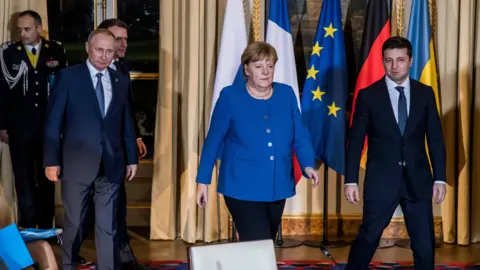
In a rare interview since she stepped down from politics three years ago, Mrs Merkel expresses concern about Vladimir Putin’s renewed threats of using nuclear weapons.
The two leaders got to know each other well over the course of two decades.
“We must do everything possible to prevent the use of nuclear weapons,” the former German Chancellor says.
“Thankfully, China also spoke about this a while back. We shouldn’t be paralysed by fear, but we must also acknowledge that Russia is the biggest, or alongside the US, one of the two biggest nuclear powers in the world.
“The potential is frightening.”
Despite enjoying high popularity ratings during most of her time in office, Mrs Merkel now finds herself on the defensive.
She has just published her memoir, Freedom. And the timing is interesting.
She says she did everything in her power to ensure peaceful means of co-operation with Russia.
In fact, Mr Putin launched his full-scale invasion of Ukraine just months after she left office.
This prompted a thorough re-examination in Europe of energy policies, diplomacy with Russia and also migration policies that had become the norm under Mrs Merkel.
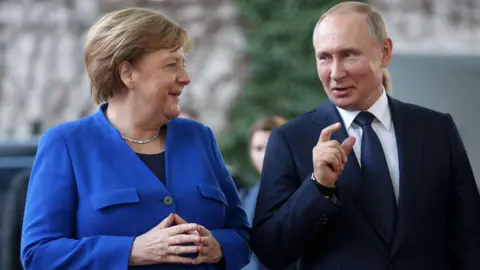
At the helm of Europe’s biggest economy, she was, as former Italian premier Matteo Renzi says, the de-facto leader of Europe – “the boss of the European Union”.
“Do you remember when [former US Secretary of State] Henry Kissinger used to say ‘what is the telephone number of Europe?’,” he says. “My answer was: clearly, the mobile number of Angela Merkel.”
He adds that when judging the Merkel legacy – over Russia and otherwise – it is important to remember the norms of the time.
“One cannot attack Angela for the relations with Russia,” he says.
“In 2005, 2006 [they] were a goal of everyone in Europe, not only a goal of Angela Merkel.”
Under Mrs Merkel, Germany and its energy-hungry big industries became dependent on Moscow. Germany built two gas pipelines directly linked to Russia.
President Zelensky described that cheap gas as a geopolitical tool of the Kremlin.
Mrs Merkel tells the BBC she had two motives with the pipelines: German business interests but also maintaining peaceful links with Russia.
Fellow EU and Nato members in eastern Europe strongly disagreed with her.
The Polish MP, Radoslaw Fogiel, said German gas money filled Russia’s war chest – used to fund the invasion of Ukraine.
Mrs Merkel insists she tried to curb Russian attacks on Ukraine using diplomacy and negotiations, which – she admits – ultimately failed.
And German industry has been disproportionately hit by sanctions on Russian energy. Forced to look for other suppliers, the country is now buying expensive LNG. Businesses says they are crippled by the costs.
A new era in Europe’s relations with Russia “regrettably” began following the full-scale invasion of Ukraine, says Mrs Merkel.
